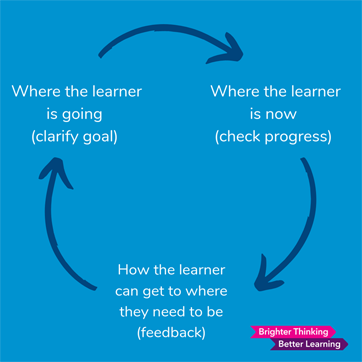02 JULY 2019
What is Assessment for Learning and What are the Benefits?

In Seven Myths of Education (2014), Daisy Christodoulou refers to the need for teachers to be ‘thermostats, not thermometers’ – not just taking a measurement of where a student is, but making changes depending on where they need to be. This is a great way to start thinking about assessment for learning.

What is Assessment for Learning?
Assessment for learning, or AFL, is a teaching approach that generates feedback students can use to improve their performance. From a teacher’s perspective, this could be as simple as observing class discussions, asking questions and reviewing students’ work in progress. AFL is often immediate and informs changes you can make to your lesson straight away to make it more effective.
Both you and your students can use the feedback to improve learning. The feedback includes information on:
- How students are learning
- Their progress
- The nature of their understanding
- Any difficulties they are having
What are the benefits of Assessment for Learning?
AfL methodology is proven to give students more control over their learning, helping boost motivation and ultimately improve their exam performance. It helps learners to see what they are aiming for and understand what they need to do to achieve those aims.
The benefit for you, the teacher, is that you gain insights into your students’ level of understanding of a particular concept or topic. This helps you to support individual students to progress.
Effective feedback in Assessment for Learning
Effective feedback in assessment for learning is vital. John Hattie’s research shows that feedback is one of the most impactful factors on student achievement, with an average effect size of 0.79 – twice the average effect of all other schooling effects (as discussed in Visible Learning, 2011).
To have a positive effect, feedback must be task-focused, timely, specific, clear and unbiased. We all know praise is motivational, but the most effective feedback concerns useable information about how students are doing and how they can improve to reach their goal. Or, as Daisy Christodoulou sees it – taking a reading and adjusting to get students to where they need to be.
Now you know the benefits of assessment for learning and what it means, you can implement it in your teaching strategy for some positive results and improvement. For more information, view our Teacher Development resources.
Thank you for your feedback which will help us improve our service.
If you requested a response, we will make sure to get back to you shortly.
×